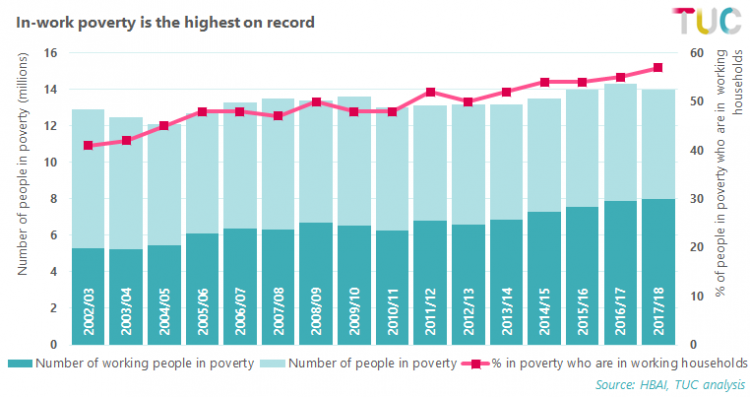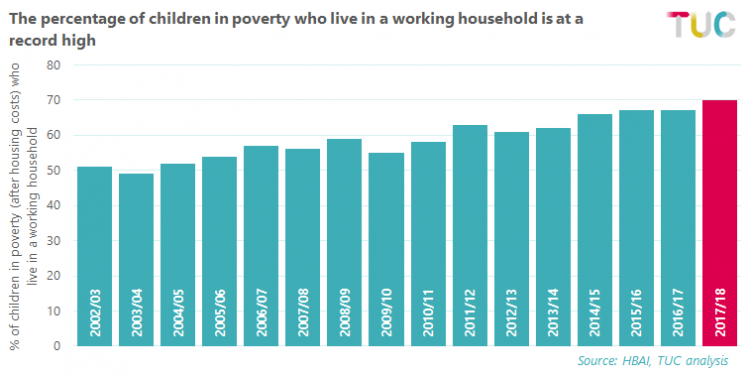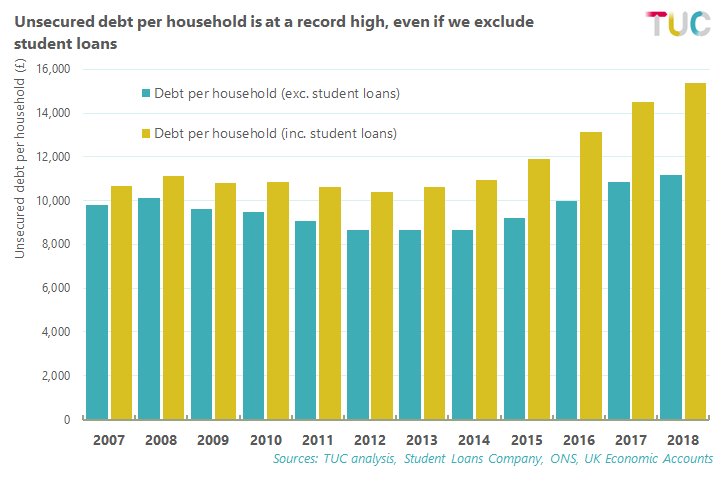
Our broken economy has locked millions of workers in poverty – here’s how to fix it
Work should be a route out of poverty, but for too many people this isn’t the case.
Today’s new figures on in-work poverty show that after housing costs 57 per cent of those living in relative poverty are in working households.
That means a staggering 8 million people are now living in poverty, despite being part of a working family:

A record to be proud of?
In his spring statement earlier this month, Chancellor Philip Hammond boasted about Britain’s “robust economy” and “remarkable jobs story”, chastising those who tried to talk down the government’s “remarkable achievement” on jobs.
The reality is that there’s plenty of reasons to talk down this government’s economic work.
Not only is the percentage of those in poverty living in a working household at its highest since records began, but so is the percentage of children from working households living in poverty.
In fact, 70 per cent of children living in poverty are in households where at least one adult works, while child poverty overall has remained way too high at 4.1 million:

Real pay also remains lower now than it was before the recession. And according to forecasts by the Office for Budget Responsibility (OBR), it’s not set to get back to that pre-crisis level until 2023.
That’s 15 years of lost wages for working people, and a generation of working people who know nothing but this post-recession pay squeeze.
Recent real wage growth is encouraging, but a few months of positive performance doesn’t cancel out years of real wage losses.
There’s also growing evidence that this recent growth is only benefitting a few high earners.
Workers under pressure
On top of this, insecure work has become the norm for an alarming number of workers.
Agency work, zero-hours contracts, low-paid self-employment and other forms of insecure work are now a daily reality for 3.7 million working people in the UK.
We’ve also seen a damaging cap on, and subsequent freeze of, in-work benefits which has meant tax credits and universal credit no longer rise in line with inflation. Coupled with the rising cost of living in recent years, this equates to big real cuts.
The Joseph Rowntree Foundation estimates that the benefits freeze has dragged 200,000 people into poverty since 2016, around half of them children. If the freeze doesn’t end until April 2020, as planned, even more (the JRF estimates another 200,000) will be pushed into poverty.
The Chancellor could’ve put a stop to the freeze in the Spring Statement, but he didn’t even mention it.
Given all of this, it’s no surprise that household debt has reached record highs. Average unsecured debt has now reached an eye-watering £15,400 per household:

A broken system
Rather than whining about people talking down the employment stats, the government should be addressing serious weaknesses in our economy.
Ministers can brag about record-high employment all they want, but they should also acknowledge some of the other records that have recently been broken: record-high levels of children from working households living in poverty, record-high levels of those in poverty living in working households, record-high household debt levels, and the longest pay squeeze in over 200 years.
We need to see the government working to sort out this mess of an economy.
It could start by raising the minimum wage to £10 per hour as soon as possible, as well as banning zero-hours contracts and reversing the cuts to in-work benefits.
And unions need to be given access to workplaces so that we can negotiate better pay and conditions for working people.
Stay Updated
Want to hear about our latest news and blogs?
Sign up now to get it straight to your inbox


